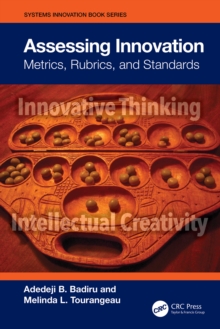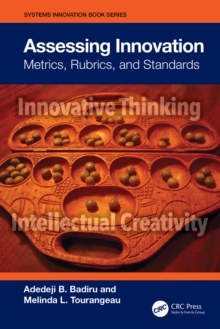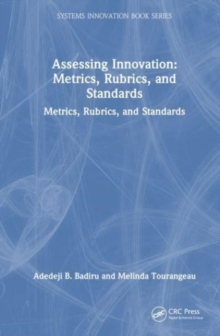
Productivity Theory for Industrial Engineering Paperback / softback
by Ryspek (Kyrgyz State Technical University) Usubamatov
Part of the Systems Innovation Book Series series
Paperback / softback
Description
Since the time of the Industrial Revolution, manufacturing industries have accumulated a huge experience in creating different machines and systems for fabricating various goods, work parts, and products.
All these diverse machines and systems, with different designs to solve pivoted economic problems, increased the productivity rate of manufacturing processes and generated high-quality products.
In the area of productivity theory for industrial engineering, there are numerous publications that describe the fundamental approaches and the mathematical models of productivity rate for the different designs of industrial machines and systems.
Known theories consider the physical productivity rate as the number of products fabricated over a given time (ASME) that is a component of economic productivity.
However, known mathematical models are simplified with assumptions and not well developed analytically, which can lead to severe errors in computing the output of manufacturing systems.
Modern industrial machines and systems are complex in design and in structure with serial, parallel, and serial-parallel arrangements, and any failure of any component leads to downtime of expensive production systems.
For this reason, industries need a productivity theory that enables accurate predicting of the output of manufacturing systems at the preliminary stages. Key features Offers fundamental principles of productivity theory for industrial machines and systems based on mathematics, technology, design, reliability, probability, and management Presents the conceptual principles of productivity theory for industrial machines and systems Provides methods for computing productivity losses in real industrial environments Closes the gap between theory and practice for computing productivity rates of manufacturing systems Incudes a comparative analysis of productivity rates for manufacturing systems of serial, parallel, and serial-parallel arrangements Productivity Theory for Industrial Engineering presents analytical approaches and methods to define maximal productivity rates, optimal machining regimes, and optimal structure of manufacturing machines and systems based on the parameters of technological processes, structural design, reliability of mechanisms, and management systems.
This book uses productivity theory for solving productivity problems and can also be used for complex approaches for sustainable improvement of production processes.
Information
-
Out of stock
- Format:Paperback / softback
- Pages:258 pages
- Publisher:Taylor & Francis Ltd
- Publication Date:31/03/2021
- Category:
- ISBN:9780367781194
Information
-
Out of stock
- Format:Paperback / softback
- Pages:258 pages
- Publisher:Taylor & Francis Ltd
- Publication Date:31/03/2021
- Category:
- ISBN:9780367781194










